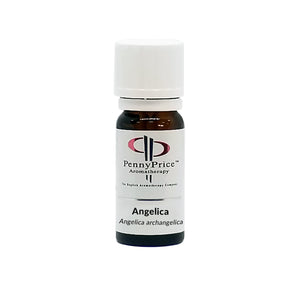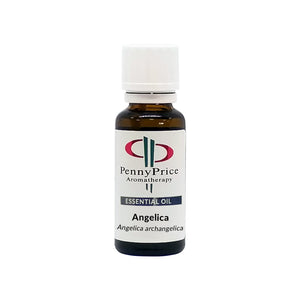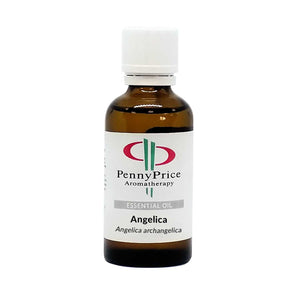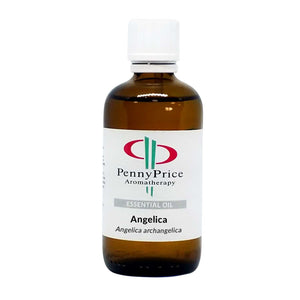Your Cart is Empty
- Shop
- Therapist Discount
- About Us
- FAQ, Blog & Downloads
- Courses
- Saturday Club
- Free Blending Series
- Product Catalogue
- Contact Us
- 01455 251020
- Login





Latin Name: Angelica archangelica
Plant Family: Umbelliferae
Extraction: Distillation of seeds & roots
Discover the ancient virtues of Angelica Essential Oil! Once deemed an antidote, introduced by Royal Prescription. Used in aromatherapy for congested skin, arthritis, gout, and rheumatism. A base note that harmonizes with citrus oils, patchouli, vetiver, and clary sage.
Our Angelica essential oil is distilled form the seeds of the plant.
Angelica essential oil is a colourless to pale yellow oil which turns yellow to brown with age. It has a rich herbaceous body note. Distilled from the seeds and roots of the plant Angelica essential oil has been used in Europe for centuries for coughs, indigestion, colds and bronchial ailments.
Find out more in Penny's in-depth unusual oil blog all about Angelica Essential Oil!
Angelica, Natural Pure Essential Oil - Available in 3ml,10ml, 25ml, 50ml & 100ml.
Angelica has been praised for its virtues since antiquity. As the Black Plague swept through Europe, Angelica Essential Oil was introduced by Royal Prescription as it was believed to be the antidote. In Lapland, garlands of Angelica were gifted to poets in the hope that their intoxicating aroma would provide literary inspiration.
In aromatherapy, it is often used for congested skin, arthritis, gout and rheumatism.
Angelica essential oil is a base note and blends well with, citrus oils, patchouli, vetiver and clary sage.
Angelica Essential Oil Safety Data
Essential oils are very powerful and should be used with caution. Here are a few tips that you may find useful, although we advise that you consult a fully qualified, registered aromatherapist who will be able to advise you on the safe methods of use. Why not give us a ring at 01455 251020 or email info@penny-price.com if you are unsure we will be happy to help.
Inhalation: Undiluted essential oils may be inhaled from a tissue or a pillow (4-6 drops). Alternatively, they can be inhaled from a bowl of hot water (3 or 4 drops) or a diffuser (see table below), but avoid this if asthmatic. Never inhale essential oils directly from the bottle.
Shampoo and Bath Foam: Create unique aromatherapy bath foams or shampoos by mixing up to 30 drops of your own essential oil blend into 100ml of a suitable bath foam base or shampoo base.
Skincare Cream: Essential oils can be added to vegetable-based creams and then developed into facial products or topical creams. Do not add more than 15 drops of essential oil to 50ml of your base cream.
Pregnancy: Essential oils are best avoided during the first months of pregnancy. After the third month, many oils can be used safely and effectively. If in doubt, always consult a qualified aromatherapist.
Bath, Massage, Vaporiser: See the table below, which gives the correct amounts to use depending on age, and a brief guide on how to use.